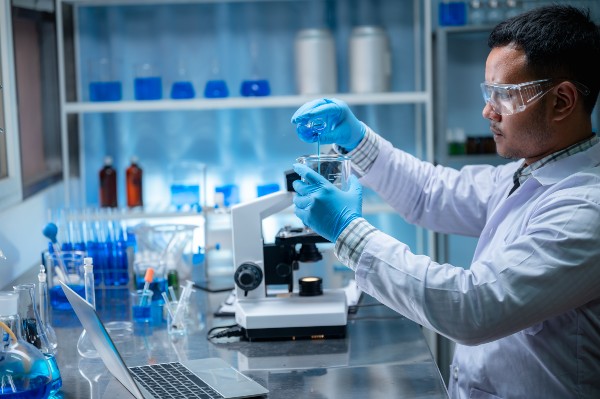The future of medical sciences in the age of innovation


Sign up to receive the latest insights
The medical sciences industry has transformed in recent years. Technology has re-shaped the sector with the introduction of digital and data-driven devices. There’s a wide range of technological solutions available. As a result, medtech companies must evolve their practices to remain relevant. That means creating a dynamic healthcare model driven by personalisation, as well as capitalising on data to ensure the delivery of the most effective treatments.
There’s no question that medical devices are hugely important in society. Some of the most recent innovations include technologies for patients that require cardiovascular monitoring. The medical devices industry continues to grow and new MDR EU regulations are changing the way these devices are enforced. The regulations will create a strong framework for the safety of medical devices that are distributed within the EU. As a result of these changes, manufacturers must make sure their products are MDR compliant.
Today, we’re entering a new era of medicine where healthcare professionals are adopting new ways to tackle diseases, using technologies that are redefining the patient experience. With all this in mind, what does the future hold for businesses in the medical industry?
The rise of artificial Intelligence
In recent years, artificial intelligence has become a major player in medical and healthcare. AI has evolved at a rapid pace and right now, there’s already a considerable amount of AI-based tools, many of which can help reduce workloads. As a result of AI and machine learning, we have seen the rise of diagnostic tools that can spot problems in patients early, and provide insights about when they need to be deferred. For example, a new AI diagnostic system developed at MIT’s Computer Science and Artificial Intelligence Lab have the power to process data and diagnose certain conditions and illnesses. AI and machine learning have a massive role to play in the future of medical devices. AI-based systems will enable professionals in the medical industry to improve efficiency and potentially redefine the diagnostic process.
Paving the way for 3D Printing
3D printing has the potential to transform the medical sciences industry in the future. It’s already revolutionising healthcare with its speed and intelligence, yet there’s still a massive opportunity for 3D printing to create better patient care, and improve processes. 3D printing technology could pave the way for patient-specific surgical models and 3D-printed human tissue, replacing the need for traditional transplants. These bionic tissues would perform the functions of an organ, which would be built using complex stem cells. Many medical devices can be 3D printed, making developing prosthetics for patients much more cost-effective and efficient. 3D printing will also play a key role in training future doctors.
The impact of personalisation
Healthcare and medical sciences have become much more interconnected due to the advances of genomics, artificial intelligence and big data, all of which will create an ecosystem of personalised care for patients. In recent years, there’s been a constant increase in data, making personalisation a top priority for business across all sectors. As outlined in an NHS report, personalised medicine is a new model that uses information about a person’s genes and lifestyle to achieve the best diagnosis and treatment plan. Traditionally, medicine was delivered in a much more fixed manner with the assumption that patients could all be cured by the same treatment. Personalised medicine presents more opportunity for disease prevention because the delivery of these medicines will be targeted and based on data and insights.
Also, with the rise of the internet of things, wearable tech is another innovation that’s changing the future of medical devices. We’re now seeing wider adoption of wearables by patients. This allows healthcare professionals to analyse patient data and to gain a better understanding of any medical issues. By using wearable tech, patients can stay informed about their condition, making it easier to respond to health concerns should they arise. Research has shown that the wearable devices market will reach a value of USD $74.03 billion by 2025. Wearable medical devices are evolving and will no doubt become more widely integrated into the medical practice as digital technology continues to grow.
How can Hanover help your business?
We deliver an in-depth, executive search service, talent solutions and market intelligence services. Our service is fully tailored to each of the companies we work with and we deliver personalised solutions. If you’re currently recruiting or looking to move, contact us to find out more.



